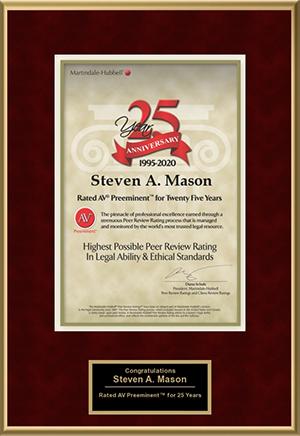Inherited Assets and Equitable Distribution in Florida
Many couples considering divorce have questions about the division of marital assets, particularly in cases where one of the spouses inherited a significant amount of money during the marriage. Before we turn to inherited assets, it’s important to understand how marital assets typically are divided in our state.
Dividing Property in Florida During Divorce
How are marital assets divided in Florida? Under Florida Statute Section 61.075, marital assets and liabilities are divided equally. In fact, the court begins with the premise that distribution will be equal unless there’s a clear justification for unequal distribution. When a court decides that an unequal distribution is justified, it makes its decision based on the following factors:
- Each spouse’s contribution to the marriage, which can include contributions of a homemaker (such as childcare and child education);
- Economic circumstances of each party;
- Duration of the marriage;
- Whether the personal careers or educational opportunities of either party were interrupted during the marriage;
- Contribution of one spouse to the personal career or educational opportunity of the other spouse;
- Desire of one of the spouses to retain a particular asset (such as interest in a business, corporation, or a professional practice);
- Desire of one of the spouses to retain the marital home for the purposes of a dependent child, particularly when it would be in the best interest of the child and when it is financially feasible;
- Contribution of each spouse to the acquisition, enhancement, or production of marital assets;
- Intentional dissipation or destruction of marital assets after filing for divorce, or within the two years prior to filing for divorce; and
- Other factors that may be relevant to ensure equity and justice.
In other words, assets are going to be divided evenly unless the factors discussed above convince the court that there’s a good reason for unequal distribution. Now, what counts as a marital asset?
Marital Assets Defined
Marital assets are defined in our state by Florida Statute Section 61.075. In general, assets include any asset, income, or liability acquired or incurred during the marriage, whether individually or together. In other words, if one spouse acquires an asset or an amount of income during the marriage, it’s typically considered a marital asset.
However, assets owned before the marriage usually aren’t marital assets. At the same time, gifts from an outside party to one of the spouses during the marriage typically isn’t considered marital property.
Inherited Assets: Marital or Non-marital Property?
Depending on when you inherited the asset and how you’ve used it, it could be classified either as marital or non-marital property. When you’re dealing with a financial inheritance, the court’s decision typically will revolve around whether you commingled the money into a joint account or used the money in any way for the marriage.
Take, for example, the case of Sorgen v. Sorgen, which was decided in July 2014. That case makes clear that, when you have inherit an asset before marriage but acquire proceeds during the marriage, those proceeds will be viewed as marital property if they’re commingled with marital assets. In the case, a wife and her sisters inherited a house prior to the wife’s marriage. They rented the house and earned income from the rental property. They deposited the rental money into a separate account. However, after the wife’s marriage, she and her husband bought out the sisters’ shares and used joint funds to renovate the house. Thereafter, they deposited the rental money into a joint account. They later sold the home and put the proceeds from the sale into a joint account.
Despite the fact that the wife had inherited the house before her marriage, the court explained that the proceeds from the house were joint, marital property. When one spouse deposits money into a joint account and that money commingles with marital funds such that it’s no longer traceable, a court will presume that the spouse “gifted” half of those funds to the other spouse.
How might you ensure that an inheritance remains non-marital property? You’d want to begin by placing it in an account owned only by you and ensuring that you don’t touch the money during the marriage. However, any appreciation in value of the asset during your marriage may still be considered marital property.
Property distribution can be extremely complicated in any divorce. It’s important to discuss your situation with an experienced Florida divorce lawyer. Contact the Fort Lauderdale and Hollywood Law Offices of Steven A. Mason, P.A. for legal advice at 954-963-5900 or leave a message online.






















